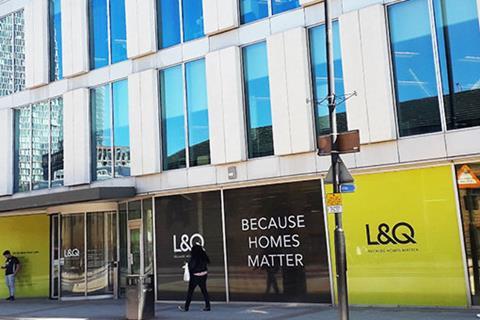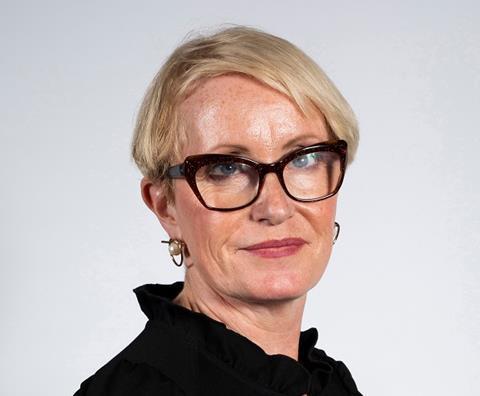Housing association giant report series of impairments reducing surplus by £53m
Housing association giant L&Q Group has been forced to make major additional write downs in its accounts wiping out more than a quarter of its expected surplus for the 2021/22 financial year.
The 107,000-home association said that the additional impairments reduced its anticipated surplus after tax by £53m from the £207m it reported in a trading update in May, to just £154m in its final audited accounts.

While the trading update had already included significant impairments, the further write downs, revealed in a statement accompanying publication of its audited accounts, includes a £24m charge for “build defect liabilities” that had not originally been anticipated in the earlier trading update. It also included an additional £17m of fixed asset impairments and £12m of current asset impairments.
The write down means the London-based association’s financial performance is well below that of the previous year, when the post-tax surplus was £208m, despite its turnover having risen to £1.11bn, and the association having completed construction of 4,157 homes – a record for the sector. It is the lowest surplus it has recorded for the last five years.
The change pushed the social landlord’s margin down to 24%, from 26% in the numbers given at the trading update, and compare with 30% last year. In total, L&Q Group wrote off £56m against houses under development in the year, with the organisation referencing problems on three significant projects.
The organisation said in the accounts that “Around 80% of all impairment in the year is attributable to just three challenging schemes (or 2% of the 185 sites that L&Q is operating from).
“The [current asset] impairment reflects increased build costs, programme delays, known defects and known offers for land values where schemes are being transferred to joint ventures.”
The admission of problems with development come in the year L&Q publicly abandoned its long-held target to build 10,000 homes a year.
The group also saw £64m of impairments on its existing housing stock, which retains a book value of more than £11bn on L&Q’s balance sheet.
>> See also: Leading the pack: An interview with L&Q’s Fiona Fletcher-Smith
The statement published alongside the audited accounts simply said that the changes reflected a “reconciliation” of audited financial statements against a trading update that had “excluded further adjustments subject to audit review”. The trading update had included a £76m impairment, and the statement said that “following the completion of the audit, […] adjustments have been made”.
The write downs have left the organisation missing a number of its own internal financial targets, such as for interest cover and operating margin. The accounts said: “Our interest cover and operating margin ratios have declined this year and did not meet our targets for the year.
“This was due to impairment on a limited number of challenging development schemes alongside increased costs associated with fire safety and major works investment programme, reactive and void maintenance costs and increased levels of void rental losses from empty homes.
“This increased investment in part reflects the lower level of activity delivered in 2020/21 due to the impact of the coronavirus pandemic, and also our stated corporate objective of increasing the quality of our existing homes.”

L&Q, which appointed its new chief executive Fiona Fletcher-Smith earlier this year, retains the highest ratings from the social housing rating for both financial viability and governance, and has “A” ratings from all three major credit ratings agencies.
The accounts showed that the organisation’s pre-tax surplus fell to £172m in the latest year, from £205m in 2020/21.
Waqar Ahmed, group director, finance, said in the statement accompanying the accounts that L&Q’s results demonstrated how the organisation remained focused on the delivering its strategic objectives, “which prioritise investment in safety and the quality of existing homes and services.”
He said: “Our investment in existing homes is coupled with a realistic and sustainable increase in new high-quality homes. At least half of the homes we build will be affordable and any profit we make on open market sales will support our core social purpose. We believe in, and will provide, mixed communities.”
Asked to further explain the change in its reported financial position, a spokesperson for L&Q said that while all the issues had been known when the trading statement was issued, financial rules meant it had to update its estimates for impairments as close as possible to the signing date of the financial statements, and at that later date additional information was available, such as around expected expenditure on build defects.
The spokesperson said: “The impairment reported is limited within a few challenging schemes in L&Q’s large and diverse development pipeline and is not a widespread issue.
“The impairment reported in the year end accounts reflects the most up to date assessment of development schemes as at the date of publication.”











No comments yet